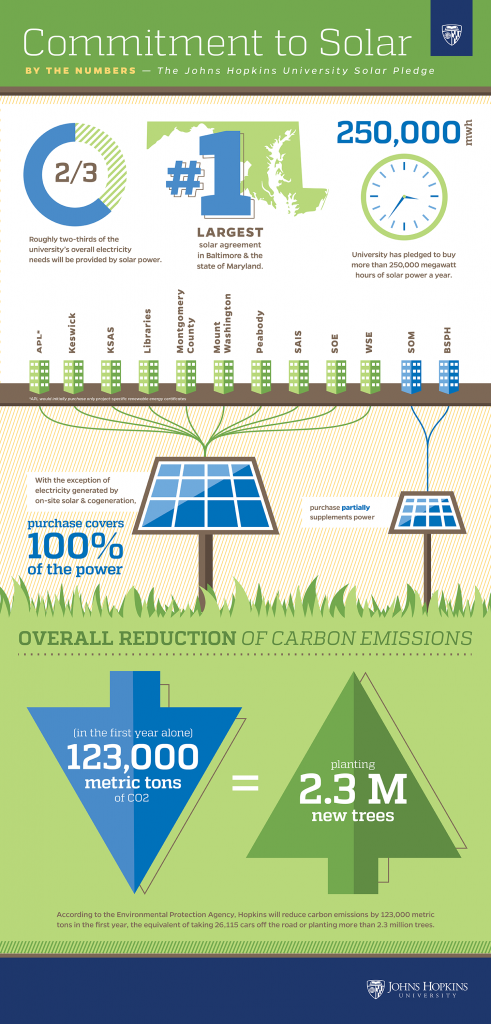John Hopkins University in Baltimore, USA has signed a PPA with energy company Constellation to provide solar power to its campus.
John Hopkins University Solar PPA
John Hopkins University signed with Constellation to purchase energy and renewable energy certificates (called RECs) from a solar plant currently under development in Virginia. The contract is for 15 years of power and will begin in 2021.
John Hopkins has multiple campuses which will be powered via the new solar PPA – these include Homewood in North Baltimore, Peabody Institute in Mt. Vernon, Keswick in Hampden and Mount Washington.
This PPA will reduce carbon emissions by 123,000 metric tons in year one. This represents the equivalent of 26,115 cars off the road or planting more than 2.3 million trees, according to a press release by the university repeated in Technical.ly.
According to the official press relesase on the JHU website, the agreement will help the university reach its goal of reducing carbon emissions by 51% by 2025.
“When we pledged to more than halve our carbon emissions by 2025, we knew it would require rethinking how we power and operate our university,” Johns Hopkins University President Ronald J. Daniels said. “This agreement demonstrates the seriousness of our commitment to sustainability for the good of our university and our planet.”
“The university’s Climate Action Plan committed us to reducing our greenhouse gas emissions drastically, developing academic programs that would train tomorrow’s leaders and scientists, and creating the technologies and policies the world needs,” said Professor Ben Hobbs, director of the JHU’s Environment, Energy, Sustainability and Health Institute.

We have reported quite frequently on university solar over the past couple of years – many Australian universities have been working hard on neutralising their carbon footprint – if you want to learn more, some of the projects are listed below:
-
University of New South Wales – UNSW Solar – uni to go fully solar powered
- University of Technology, Sydney – UTS Solar – aiming to fully offset all energy.

